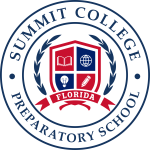Academic Identity and University Pathway
Global Academic Purpose and Structure
As a nonprofit online high school for Grades 9–12, the school prepares gifted, multilingual learners for competitive universities. Its mission focuses on academic excellence and global readiness. Graduates complete a 26-credit U.S. diploma that aligns with national and international benchmarks.
In addition, students follow a rigorous multilingual curriculum structured across a 194-day academic year. Courses take place six days per week and include English, two world languages, and advanced-level instruction. Consequently, each learner moves toward CEFR C1 or HSK 6 fluency by graduation.
Global Curriculum and Language Proficiency
All learners follow an individualized academic plan. Each plan connects their coursework with future university goals and multilingual diploma outcomes. Therefore, every student builds a verified academic profile that reflects global readiness.
Furthermore, courses are taught live by qualified faculty and designed around international standards. This structure supports both academic growth and long-term confidence.
University Readiness and Credit Validation
We offer more than preparation it builds a university pathway. Advisors guide every key academic decision from Grades 9 through 12. Over time, students develop college-level writing, reasoning, and multilingual fluency.
Consequently, graduates demonstrate academic excellence and global admission readiness.
26 Credit Diploma - Academic Rigor and Global Standards
Summit’s 26-credit diploma includes English, math, science, social sciences, world languages, technology, and electives. Every subject is taught live and includes formal assessment and structured feedback.
For example, English emphasizes academic writing and literature. Meanwhile, math includes calculus, and sciences integrate hands-on lab experiences in biology, chemistry, and physics.
Credit Model and Structure
Students earn credit based on demonstrated mastery, not attendance hours. Each course is evaluated through performance-based assessments and growth metrics.
Consequently, progress reflects both effort and results not simply time in class.
Accreditation and Assurance
Long-term Summit plans to apply for full accreditation after completing three academic years. Until then, the school provides verified transcripts, records, and dual enrollment documentation that meet institutional standards.
This approach protects students’ long-term academic mobility and integrity.
Multilingual Education and Language Diplomas
Learners study toward internationally recognized certifications: DELE C1 (Spanish), DELF C1 (French), Goethe-Zertifikat C1 (German), and HSK 6 (Mandarin). These diplomas open university access across Europe, Asia, and beyond.
Additionally, all language courses are taught live and aligned to CEFR or HSK frameworks.
Faculty and Instruction
Instructors teach live never with pre-recorded content. Faculty lead small-group or one-on-one sessions across a six-day week and provide ongoing feedback.
As part of their role, teachers assess academic progress, attendance, and language growth each term.
Individual Learning Plans
Every student follows a customized ILP (Individual Learning Plan), designed in collaboration with families and school advisors. These plans define the path toward high school graduation, college-level coursework, and language certification.
Plans are reviewed each term and adjusted to match evolving academic and personal goals.
Dual Enrollment Options
In Grades 11 and 12, eligible students may enroll in U.S. college courses through accredited partners. These classes award both high school and university-level credit.
For instance, learners must complete prerequisite coursework and receive approval from the academic team before beginning.
In turn, this strategy helps students transition to competitive universities with verified experience.
Explore related resources and verified global education links:
